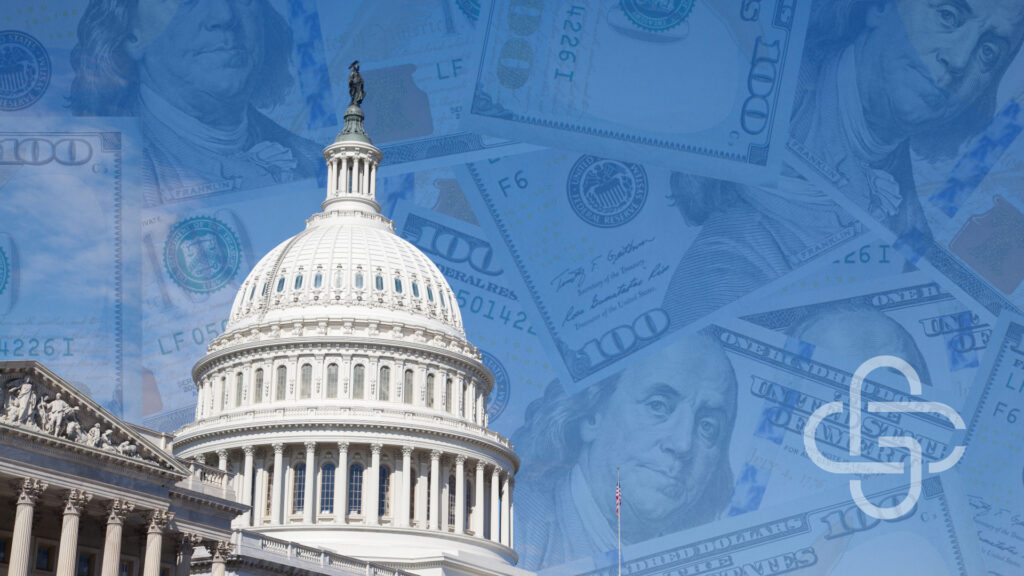What Affects You? Inside the Proposed “One Big Beautiful Bill Act”

Congress just took a big step forward on tax changes with the passage of the “One Big Beautiful Bill Act,” and it certainly is big. The House narrowly approved the bill on May 14, 2025, which would make most of the expiring provisions of the Tax Cuts and Jobs Act (TCJA) permanent through a package of revenue-raising tax increases. Now it’s the Senate’s turn to weigh in.
For those following tax news, Grimbleby Coleman’s Tax team summarized the most talked-about proposed changes for business owners. Keep in mind that this bill will almost certainly be amended in the Senate, and possibly again in the conference committee, before final passage.
Amended Bill Passed by the House (May 22, 2025)
After extensive debate and a manager’s amendment, the House passed an updated version with several notable changes:
- SALT Cap Now Higher: Increased to $40,000 per household ($20,000 for married filing separately) starting in 2025. Phase-out begins at $500,000 MAGI ($250,000 MFS); indexed for inflation through 2033.
- No Workaround for Some Businesses: Specified service trades or businesses (SSTBs) cannot deduct State and Local Taxes (limiting Passthrough Entity Tax/State and Local Tax deduction usefulness).
- Children’s Accounts Renamed: “MAGA” accounts now called “Trump accounts.”
- Itemized Deduction Rules: The Pease limitation on itemized deductions is permanently removed. A new two-pronged reduction formula applies to high-income taxpayers, reducing allowable itemized deductions.
- Business Losses: Non-corporate taxpayers must carry forward excess business losses as such, rather than as net operating losses (NOLs).
- Contingent Fees: Treasury is barred from restricting contingent fees for tax return/refund preparation.
- Clean Energy Credits: Faster phaseout for low-carbon electricity credits; strict deadlines for construction/placement in service. Wind and solar leasing expenditures excluded from certain credits.
- International and Other Provisions:
- FDII/GILTI: Deductions under Sec. 250 kept slightly higher than TCJA’s post-2025 reductions, but not as high as initially proposed.
- BEAT Tax: Scheduled increase capped at 10.1% (not 12.5%).
- Firearms: Silencers excluded from “firearm” definition; transfer tax on silencers set to $0.
- Deficit Impact: Congressional Budget Office projected a $3.775 trillion deficit increase over 10 years (pre-manager’s amendment).
Key Provisions of the Draft Bill:
- SALT Deduction Cap: Increase from $10,000 to $30,000 ($15,000 if married filing separately), with reductions for high earners (MAGI over $400,000/$200,000). Note: This item has been changed to higher amounts in the House Amended Bill section above.
- IRC §199A Deduction: Raised from 20% to 23%.
- Bonus Depreciation: Extended 100% bonus depreciation for qualifying property (1/20/2025–12/31/2029).
- Research Expense Deductions: Immediate expensing for domestic research expense expenditures (2025–2029).
- Vehicle Credits: Clean vehicle credits terminated (two in 2026, one in 2027).
- Children’s Savings Accounts: Created “MAGA” accounts (Money Account for Growth and Advancement) for children under 8.
- Other Provisions:
- New above-the-line deductions for tips, overtime, and vehicle loan interest (through 2028).
- Reinstated cash charitable deduction ($150 single/$300 joint).
- Additional standard deduction up to $4,000 for seniors/blind, phased out by adjusted gross income.
- Raised 1099-K reporting threshold to $20,000 and 200 transactions: 1099-NEC/MISC from $600 to $2,000.
Thus far, there are still no proposals to raise the exclusion or deduction for Social Security benefits. However, several of the new provisions are limited to taxpayers who have a valid Social Security number.
Through our BDO Partnership, we are happy to provide a more detailed synopsis of the bill and its implications. Or find the official draft bill here: www.congress.gov/bill/119th-congress/house-bill/1/text.
Get in Touch
Reach out to your accountant or contact our team if you have specific concerns or questions about this update. Stay tuned for updates from our team as the legislative process continues.